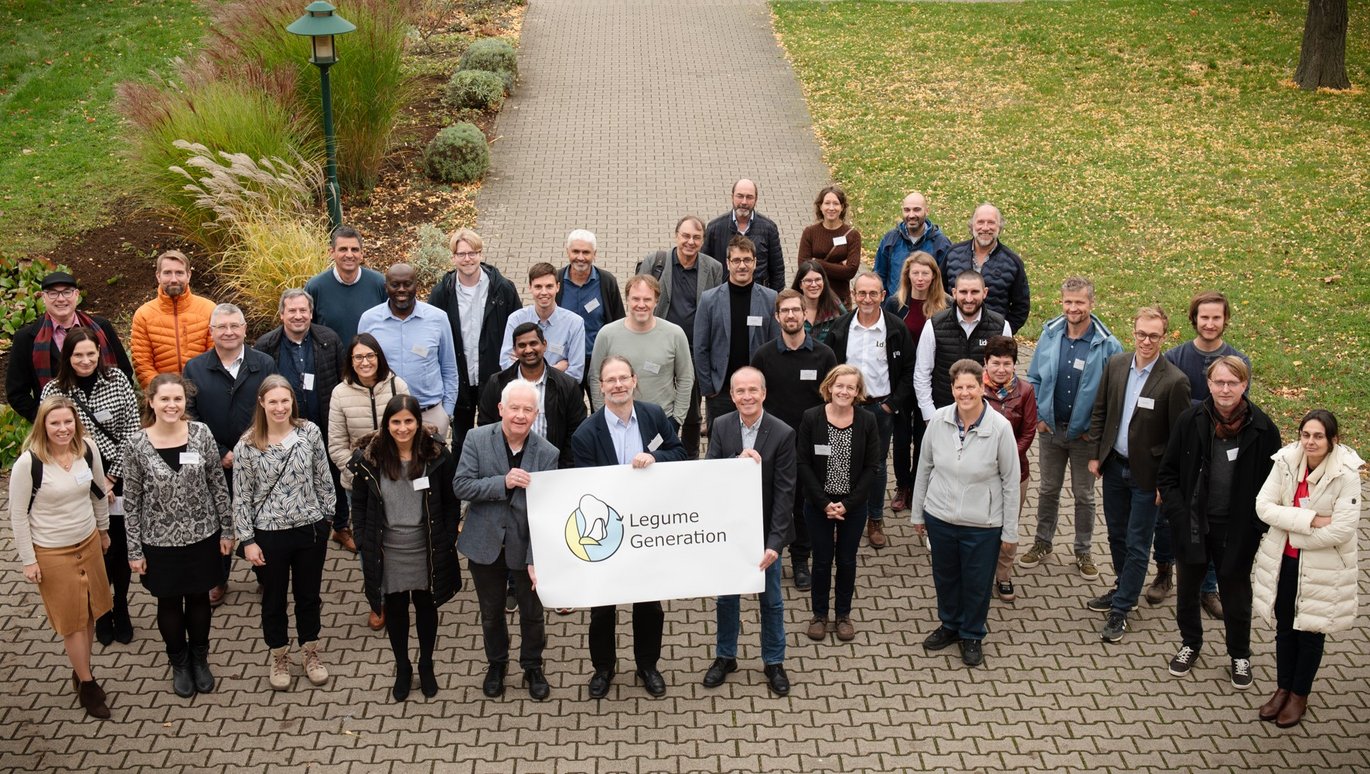Plant breeders and researchers collaborate for the next generation of legumes to reduce the protein gap in Europe
Professor Stig Uggerhøj Andersen from the Department of Molecular Biology and Genetics at Aarhus University is part of a European consortium "Legume Generation", which aims at developing plant breeding to make legumes more productive and profitable for European farmers. The consortium has been awarded Euro 7 million from the EU and the UK for the project.

We need better legume crops to help farmers meet Europe's demand for plant protein. The Legume Generation consortium has 32 partners from 16 countries, including New Zealand and the US. Together, they operate more than 40 legume breeding programmes. In Legume Generation, the breeders will join forces with Europe's leading research organisations in the field to strengthen the breeding of soybeans, lupins, peas, lentils, common bean and clover. Legume Generation runs from September 2023 to February 2028.
Legumes are good for our health and the environment
In the light of climate change, declining biodiversity, and the benefits of plant-based foods, plants of the legume family are good for our health and for the planet. Lentil, soybean, lupin, pea, and common bean and their relatives fix their own nitrogen from the air in symbiosis with soil bacteria, and provide us with the protein-rich seeds, including the pulses, that are key to a healthy and sustainable diet. Increasing their production in Europe makes farming systems more diverse, resilient and sustainable. Their flowers are a source of pollen for insects. In addition, clover is very valuable in sustainable grassland farming systems.
Closing Europe’s protein gap
Despite all the benefits and the need to change how we source and use plant protein, legume crops are relatively rarely grown by European farmers, accounting for only 2-3% of the cropping area. Part of the reason for this is that investment in the breeding is constrained by low rewards for the private plant breeding of these crops. The Legume Generation consortium addresses this by creating new structures for collaboration between legume plant breeders and public research. It puts six species-specific innovation communities at the heart of the effort to improve legume crops. Each will bring together genetic resources, expertise in data management, genetics, testing and focus this on the breeding of its crop species, led for the benefit of breeders.
Legume Generation is a contribution to a European Protein Transition
How we source and use plant protein has a huge impact on the world. The European farming is dominated by starch-rich cereals, a large proportion of which is used to feed animals so that most of us can have diets rich in animal-sourced foods. This highly productive agricultural system with a large livestock sector in the EU and UK uses about 10 million tonnes of nitrogen fertiliser (from natural gas) and the equivalent of about 35 million tonnes of protein-rich soya, mostly imported. The resulting environmental problems are largely and ultimately due to the fact that many Europeans consume animal-sourced foods well in excess of public dietary guidelines. Protein is about 16% nitrogen. Most of the nitrogen in protein is lost to the environment when the protein is used to feed animals. Consequently, animal-sourced foods are linked to a wide range of nitrogen-related problems (nitrate, ammonia, and nitrous oxide).
Increasing legume production in Europe is part of a two-pronged solution. It diversifies crop production while reducing reliance on fertiliser nitrogen. At the same time, increasing the production of grain legumes for food aligns well with the growing demand for plant-based protein-rich foods. This supports the EU’s Farm to Fork and Biodiversity strategies.
The consortium is coordinated by Dr Lars-Gernot Otto at the Institute of Plant Genetics and Crop Plant Research (IPK) and Dr Donal Murphy-Bokern from Lohne in Germany.
This news article is based on an article written by Donal Murphy-Bokern.
More information on the Legume Generation project: www.legumehub.eu/legume-generation/
For more information, please contact
Professor Stig Uggerhøj Andersen
Department of Molecular Biology and Genetis
Aarhus University, Denmark
sua@mbg.au.dk
